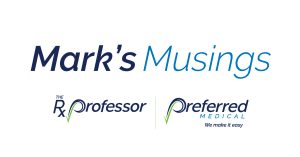
I think we can all agree that 2020 sucks.
But as difficult as the first five months have been, “fall” in the title does not refer to civilization. Instead, it refers to the upcoming season from September 22 through December 21. How can we prepare for the future that is only a hot summer away? It comes down to body and mind wellness.
○ Focus on physical health. As the coronavirus went from “novel” to “known,” severe obesity (BMI of 40+) increased the risk of severe illness from the respiratory disease. Per the CDC, that was in addition to those with chronic lung disease or asthma, serious heart conditions, diabetes, chronic kidney and liver disease or are immunocompromised. The good news is that physical fitness can mitigate some of those comorbidities. With work-from-home and gym closures since mid-March, hundreds of thousands of Americans rediscovered the value of walking outside. It could be that simple – just keep walking (and throw in some jumping jacks and push-ups) on a daily basis. However, that is not the entire list. Eat more nutritiously, reduce sugar and caffeine intake, and drink 75 ounces of water daily. Figure out what your optimum weight is and make it a reality. Schedule an annual physical. Get a flu shot. Start each morning with stretching exercises to get your body ready for the day. Stop smoking and any other type of nicotine. Reduce alcohol consumption. An active lifestyle increases the efficiency of the cardiovascular system, helps manage weight, and boosts both energy and mood. Creating that kind of mindset now, not just for this Fall but for the next several decades, has massive positive ripple effects. The release of endorphins as a biological consequence from activity helps with the next focus.
○ Focus on mental health. Anxiety and depression are at epidemic levels in 2020 due to a daily dose of bad news (“Anti-anxiety medication prescriptions have spiked 34% during the coronavirus pandemic”). That results in a higher amount of stress and calls to crisis help lines. The increase in “deaths of despair” began before the deaths of Breonna Taylor in Louisville, George Floyd in Minneapolis and David Dorn in St. Louis turned the U.S. into a (literal) tinderbox. However, the way in which you respond to these stressors is up to you. Use deep diaphragmatic breathing, meditation/mindfulness and wellness apps to change your thoughts. Learn how to talk to yourself differently, switching from negative self-talk to positive affirmation. Turn off the TV. Practice good sleep hygiene. Create a gratitude journal (everybody has at least one thing for which to be grateful on a daily basis). If you are not already, become an inquisitive lifelong learner by expanding your intellect and cognitive abilities. Find tangible, non-judgmental ways to show compassion and empathy to others, like contributing money and/or time to a community food bank. Invest quality and quantity time into existing relationships and create new relationships outside of your comfort level. Speak aloud short-term and long-term goals that are achievable but will stretch you. If all else fails and everything around you is too much, talk to someone.
The primary lesson of 2020 thus far is to not make any assumptions or take anything for granted about either the present or the future. The goal for the next three months should be to reduce your personal amount of risk. Not with ambiguous “New Year’s Resolution” type of goals that are here today and gone tomorrow, but actual target numbers and tangible actions. Pair up with an accountability partner to ensure progress. This marathon of 2020 makes wellness non-optional, but wellness does not occur easily or by coincidence. That is why preparing … now … for the Fall is a good investment.
(originally published on WorkersCompensation.com’s Experts View on June 4, 2020)
